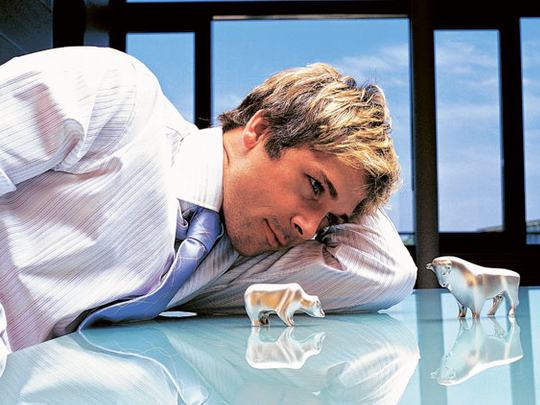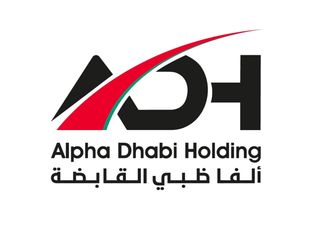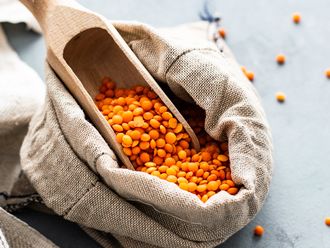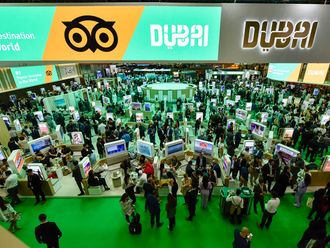
Investors can still find companies in the region that are paying healthy dividends this year, even as the global recovery remains in a sluggish mode.
In fact the dividend yield — the ratio of payouts to share prices — of the region continue to be higher than some of the world's major markets.
MSCI Gulf index's dividend yield of 3.32 per cent of 2010 was above MSCI emerging markets' 2.22 per cent and also, that of S&P500 Index of 1.87 per cent and Dow Jones Industrial Average of 2.41 per cent (see table).
The Dubai Financial Market (DFM) is expected to have a dividend rate of 4.44 per cent, a jump of more than one per cent from 2010 and likely to be the highest in the region this year. Qatar and Saudi Arabia come next with estimated yields of 4.26 per cent and 3.76 per cent respectively in 2011.
And some of the mature companies that have been least impacted by the global economic crisis, mainly in the telecom, cement and consumer (also known as retail) sectors, the so-called defensives, continue to lead in distribution.
According to Shuaa Capital's latest Equity Research GCC Strategy Note released on Wednesday, their list of 14 defensive stocks under the Shuaa yield screener, the aggregate dividend yield of 7.5 per cent will be earned in cash in the short term.
That's a yield improvement of 50 per cent over last year (2009), when the aggregate rate of their dividend list was 5 per cent, according to Amer Halawi, managing director and head of research at the Dubai-based investment bank. "From a defensive perspective, investors should be getting back nearly 10 per cent of their investment in less than trimester, while keeping the full equity upside," the report adds. (See box for Shuaa's screener and allocations).
As analysts point out, investors should be realistic in their expectations and be able to differentiate between companies, rather than penalising companies which do not meet their expectations.
Investors should not expect a company with debt servicing problems and cash flow difficulties to pay dividends, says Samer Darwiche, financial analyst with hedge fund firm Gulfmena Alternative Investments, Dubai. "Core shareholders and management must eye company's survival and focus on core business operations to meet obligations. Any returns should be reinvested to bring back the company on a healthy track."
Position in the market
However, investors should make a distinction between companies, says Taher Saffieddine, lead analyst at CAPM Investment, Abu Dhabi. As he says, there are growth companies that are still young and working towards consolidating their position in the market. "To distribute dividends or not, our view depends on the type of the company," Saffieddine says. "For us, if the company is a growth type, we would like it to retain cash for operations to enhance its growth prospects and thus not pay out dividends (example of Drake & Scull International in the UAE). On the other hand, we have some mature companies that we expect to pay out dividends as a reward for shareholders. This includes companies like etisalat [which is not open to foreign investors], Saudi Telecom, Sabic, Industries Qatar, Safco, Commercial Bank of Qatar among others."
Tough liquidity
"We also have companies that are operating in a tough liquidity environment — we prefer cash to stay in the company (example of Emaar and Aldar in the UAE)."
Darwiche points to some mature companies that pay out dividends when growth slows down and stock prices stagnate: "Companies should at some point start paying dividends especially when the company reached its growth potential to keep investors interested in its stock if the latter is not moving," he says. Etisalat is a case in point, he added.
However, as Marwan Haddad, portfolio manager at Rasmala Investments, says it's a matter of taste, depending on investors' motives. He distinguishes between older and the younger generation of investors. "You find older retail investors preferring stocks that distribute regular dividends perceiving it as a regular income that can be spent while preserving their initial investment's value. They might end up selling a stock if it lowers or stops its dividends. And there are the young and wealthy investors who do not really care and focus more on the future and earnings growth," he says.
But he does agree with the school of thought which advocates that companies which payout dividends are perceived as less risky as the investor receives some cash-flow. "A bird in the hand is worth two in the bush," he says, "and this also sends a positive signal to the market about the strength of company's core operation, hence they are preferred by a wider range of investors."
Currently, Hadad points out, there are still a few good high dividend yield names that are still trading on a cum-dividends basis like, Air Arabia and Abu Dhabi Islamic Bank in the UAE, Qatar Islamic Bank, Qatar Electricity & Water, and Industries Qatar in Qatar, Oman Telecom in Oman, and finally, Advanced Petrochemical Company in Saudi Arabia.
Report points to yield as main strategy
The main theme of Shuaa Capital's "investing in uncertain times" strategy, according to its latest report, is dividend yield.
"In the absence of a sufficiently deep credit market to provide us with yield, we find decent shelter in visible yield with thin the equity space," says the report. The two other parameters are visible earnings growth and low valuations, though in arriving at the portfolio, they are overweight yield, which assumes more importance during periods of uncertainty.
Most of the cash dividends have not yet been paid out. Shuaa expects an approximate, aggregate dividend yield of 7.5 per cent in cash by its yield screener in the short term. In other words, as Amer Halwai, managing director and head of research, Shuaa Capital, explains, "Most of them will go ex-div in the next quarter with a cash payment shortly thereafter, which means that you pay the price of the shares today and get back the equivalent of 7.5 per cent of your investment in one quarter."
The screener is tilted towards Saudi Arabia, though UAE has the deepest value and Qatar has the most visible growth. But there's a reason for it.
"The diverse nature of the Saudi economy also provides for unequal economic performances depending on cycle/sector. This is reflected in the Saudi stock market and has so far kept us from believing in an indiscriminate ‘Saudi country call'. However, on the basis of a more focused portfolio with an attractive blend of value and cash availability, Saudi tops the rankings," the report notes.
In terms of sector allocation, the screener includes some traditionally defensive sectors such as utilities, telecom and retail. But it also includes commercial banks, transportation and industrial cyclical stocks, which are outside the traditionally defensive sectors.
"In our opinion, this is due to the structure of the market which: 1) largely over-represents some sectors compared to others (that is, banks), 2) is very sensitive to significant cash dividend distributions, and 3) has large portions of government ownership providing stability and security of earnings," the report states.
Defensive positioning
Talking about risks to their selection, the report points out that the "defensive positioning is valid until the geographical concerns last."
"As such concerns get progressively lifted and outside of a lasting oil shock which would hurt company earnings, the market has strong potential for rebound considering the current valuation levels. In such a case, any defensive portfolio would lag behind the market performance.
To mitigate such upside risk, one might add less defensive stocks with a fundamental, long-term quality and value conviction," it adds.
In terms of downside risk, it says, in the context of the current uncertainty, further downside to GCC indices from the current levels is possible.
"Oil is an obvious hedge to regional long-only equity investment, since any further political disruption is likely to bring additional upward pressure to the commodity. This trade seems to have been played already, gauging by [around] 20 per cent jump in spot prices this year. We believe it remains a good trade to be in, to hedge against extreme political scenarios.
Finally, cash remains safe haven king," the report says.












